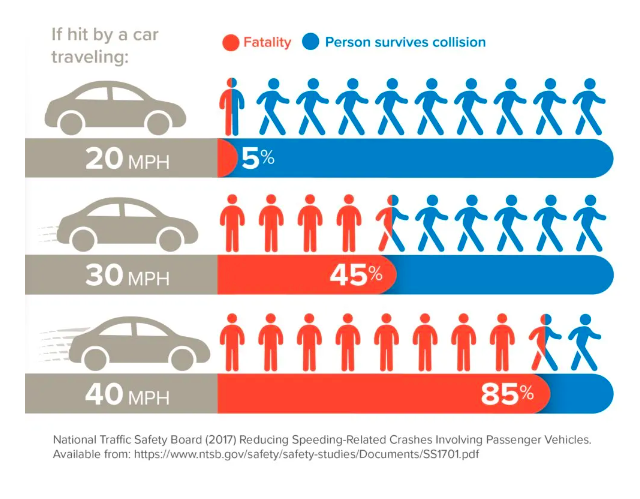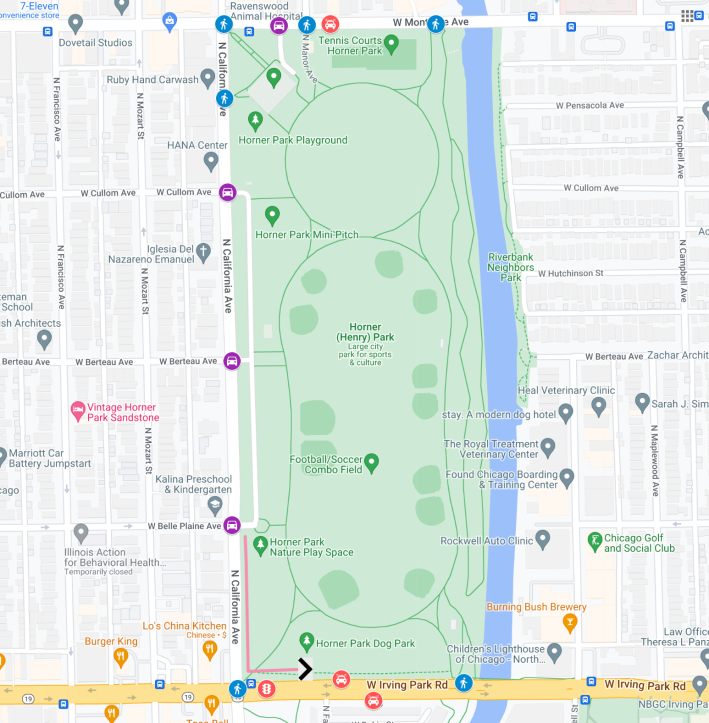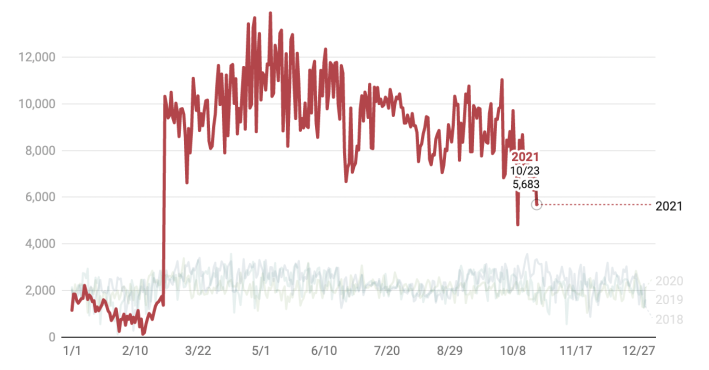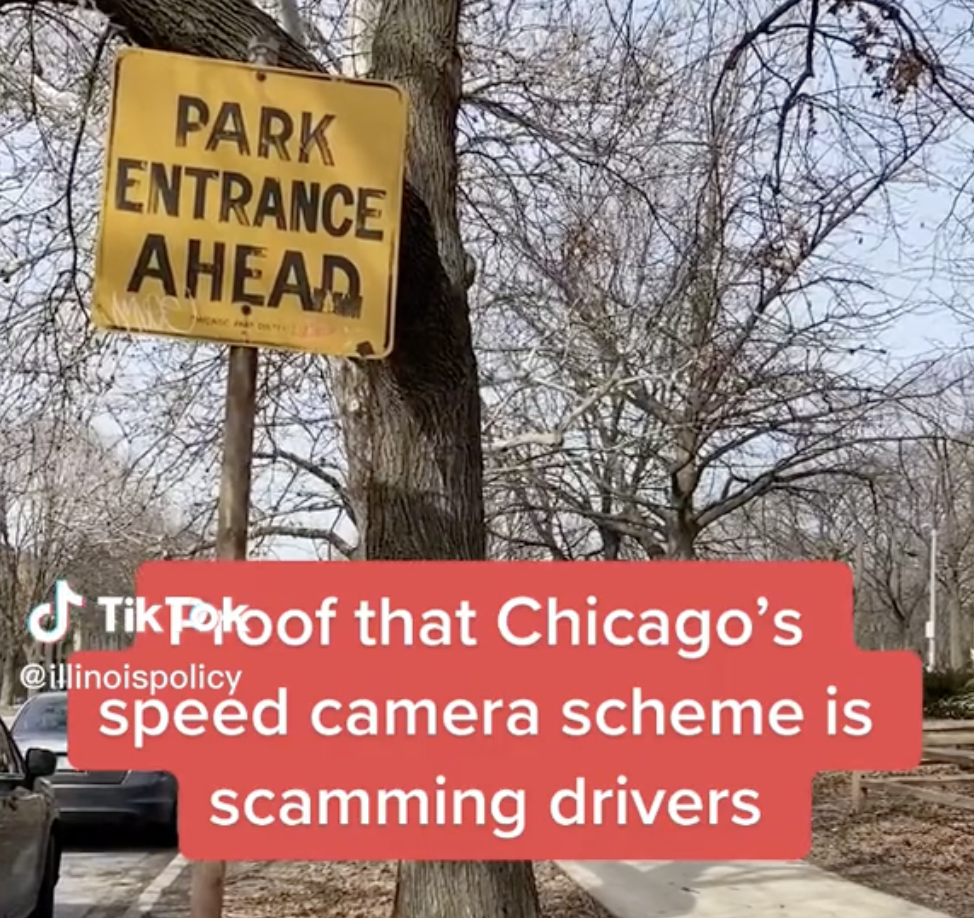Update 3/24/23, 11:15 AM: The social media user Driving Is a Sin made his own TikTok rebuttal to the Illinois Policy video, featuring Bill Swerski's Superfans-style narration.
@driving_is_a_sin Replying to @josh1275429764 @illinoispolicy ♬ original sound - Car Free Chicago
The right-wing think tank Illinois Policy Institute has a longstanding vendetta against Chicago's speed cameras. That's despite the fact that a recent University of Illinois at Chicago study found the program prevented more than 200 injury and fatality crashes between 2015 and 2017.
On Monday Illinois Policy ran a blog post essentially arguing that Chicago speed cameras aren't improving safety because they didn't prevent our city from experiencing the COVID-era increase in traffic crashes that has been a nationwide problem. Streetsblog will deconstruct that highly misleading piece in the near future.
In the meantime, for comic relief, let's take a look at this unintentionally hilarious anti-speed cam TikTok video IPI posted yesterday, titled "Proof that Chicago's speed camera scheme is scamming drivers." It was filmed at Horner Park, located on the west side of the Chicago River between Montrose Avenue and Irving Park Road in the Irving Park community.
@illinoispolicy It’s not about “safety” and it never has been. #chicago #crime #publicsafety #traffic ♬ original sound - Illinois Policy
"So this is the entrance to Horner Park, supposedly being protected by the city's most profitable speed camera," the Illinois Policy representative says, pointing to a yellow "Park Entrance Ahead" sign just south of an entrance to the park's parking lot at Belle Plaine Avenue and California. (We haven't confirmed that this is actually the speed camera that has recorded the most violations by drivers going 6 mph+ over the limit near parks or schools. Chicago's default speed limit is 30 mph, and federal studies show that a person struck at 36 mph will usually die.)

Importantly, this isn't the entrance to Horner Park. It's only one of four places it's possible to drive into the park, and several locations where you can enter the green space on foot or bike via sidewalks or multi-use trails, as you can see on the map below. It also shows the location of the speed cameras, which were installed on both sides of Irving Park, half a block east of California, as well as on Montrose east of Manor Avenue, plus red light cam just east of Irving/California.

"Except this [California] is not the street that the speed camera is on," the IPI rep says. "You can actually see a sign over there that says it's... and around the corner [on Irving Park.]" She walks south from Belle Plaine on California towards Irving Park and then heads east. "That's not it – that's a red light camera," she says, pointing to the RLC just east of the intersection. The video notes that there's a fence on the south side of the park between the bike-ped entrance at Calfornia/Irving and the one on Irving next to the river, which IPI somehow seems to think bolsters its argument.
"And here we are," the rep says triumphantly, pointing her phone at one of the speed cameras. "This is the most profitable speed camera in the entire city of Chicago. You've got the other one across the street. This camera is pulling in $4 million a year for the city." That is to say, lots of drivers have chosen to travel at a deadly speed at this location, but presumably the cameras are also causing many more to hit the brakes here in order to avoid a ticket. IPI's own research showed that, after Chicago lowered the speed camera ticketing threshold from 10 mph over the limit to 6 mph in early 2021, there was a major positive effect on driver behavior. You can see that in the graph below.

"So there you have it," the IPI rep concludes. "There's a traffic camera on the busy street, the state highway that gets all the cars going by, but none at the actual entrance to the park, which, by the way, also happens to have a preschool across the street."
Again, the parking lot entrance at Belle Plaine/California where she began the clip is not "the actual entrance to the park." It's one of many different locations where you can enter the green space while walking, biking, and/or driving. The speed cameras and RLC on Irving Park, a busy five-lane road, help protect people crossing the street while entering or exiting the park at Irving/California. That's probably one of the busier pedestrian access points to Horner, since the block of California south of Irving includes California Park, the McFetridge sports complex, Infinity Arts Academy, and, yes, another preschool, TC Scholars Preschool. Likewise, the speed camera on Montrose protects people using the crosswalk at Manor Avenue and a park entrance, which is connects the 312 RiverRun Trail network with the Manor Greenway on-street bike route.

Chicago Department of Transportation data confirms that Horner Park's speed cameras have been effective in reducing crashes. As you can see in the chart above, there were 42 total crashes within the eight-mile radius Safety Zone around the Montrose speed camera from 2012-2013, before the cam was installed, but only 18 total crashes in 2019-2020, after installation, a 57 percent reduction. Injury or fatality crashes dropped from 12 to four, decreasing by two-thirds.
Similarly, there were 53 total crashes within Safety Zone around the Irving Park speed cams in 2012-13, before installation, but only 28 in 2019-20, after installation, a 47 percent drop. (The red light camera at this location also probably contributed to the safety improvement.) Injury or fatality crashes decreased from 19 to 11, a 42 percent reduction.
All this to say, the Irving Park side of Horner Park, as well as the Montrose side, are logical places for the cameras. The notion that the cams are a cash grab simply because they're not located by one particular park entrance out of ten is truly ridiculous. But it's typical of the kind of mental gymnastics people who philosophically oppose automated enforcement make in order to argue the cams don't improve safety.
Thanks to Streetsblog's Steven Vance for flagging this.






